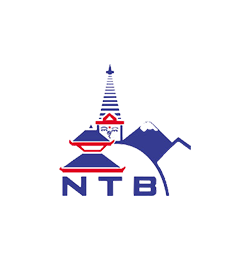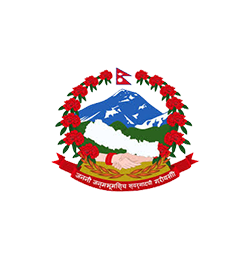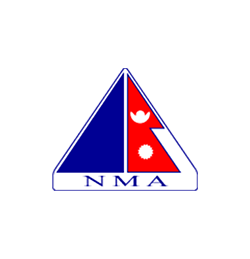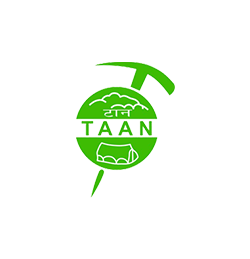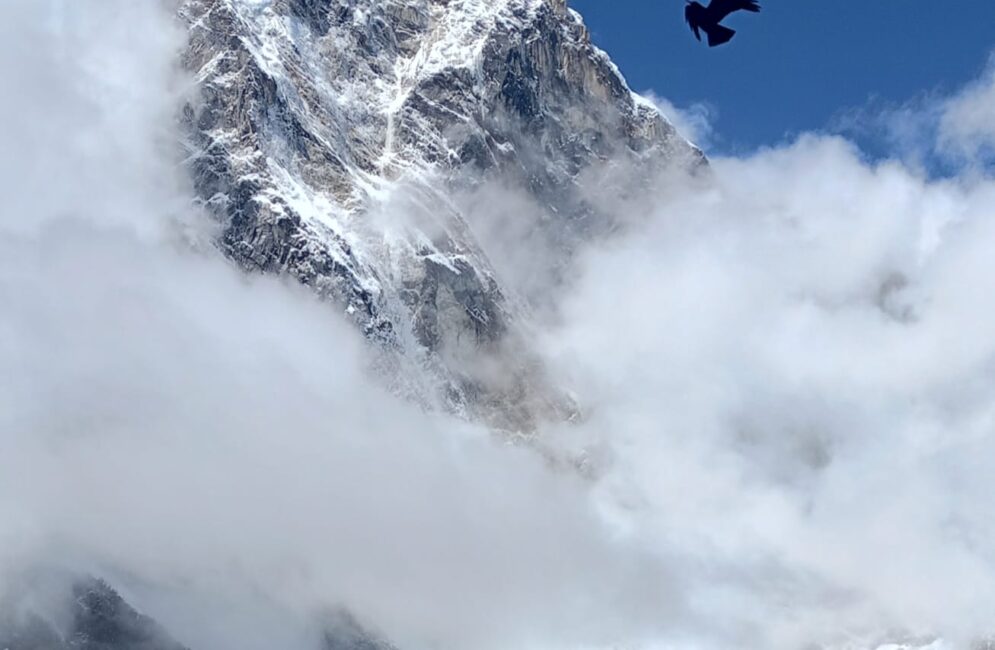
Overviews:
Group joining trek with sharing permits is a guideline for all visitors to Nepal. For those who are interested in various trekking adventures and tours in Nepal. Whether traveling solo or joining groups, the text with information helps you to plan your enjoyable holidays in Nepal.
The first important thing to know is if one is planning a trek around the Nepal Himalayas. From 2022, all individual or solo trekking is not allowed must join with Nepal base, reliable trekking, or tour agencies.
Where the local agencies will assign a good expert guide holding a Government Authorized License. The trekkers also have to use the service of a porter to carry the baggage of a certain weight limit. Group joining trek with sharing permit is safety and cheaper way with a lots joy in Nepal.
After booking the treks of your interest, all logistics and paperwork required will be done by the companies. After submitting a full payment of the trek as per region and duration wise. Book with the reliable and renowned local Trekking Company, where all agencies offer various facilities as per the trip cost.
The quality of services can differ from one agency to another, but White Hill Adventure is the best. Providing with the best information and itineraries as per the client’s choices either group fixed departures. As well as organize customized or tailor-made itineraries to suit your holidays in Nepal.
1: Sharing Trek Permit.
A: Restricted area permits sharing:
For those who are new visitors to Nepal, and interested in planning an adventure holiday around the Himalayas. Make sure of the itinerary, cost, and what’s included and excluded in the package of the trip price. Talking about the Restricted area permit sharing, the recent forbidden areas that have been
opened for foreign trekkers. Is declared as a Restricted Area, like Upper Mustang, Upper and Lower Dolpo, Limi, and Humla Valley. Includes Upper Manaslu and Tsum Valley, where trekkers require a special permit to enter this Restricted area.
Where the cost of special permits is much higher than normal trekking routes. The Government has made the rules to maintain the eco-systems, limiting the mass flow of trekkers. The permits cannot be shared as the cost of each permit is for individual trekkers. However, when trekking around a restricted area
minimum number of 2-3 people is required.
B: Non-restricted or normal permit sharing:
Non-restricted or normal trekking permit sharing, all trekkers visiting the Himalayas for a day or week and more. Must obtain a trekking permit called TIMS (Trekking Information Management System) in most Himalayan destinations around Nepal. In some areas like Everest, entry permits are issued by the Khumbu
village community. Whereas for the other regions, the TIMS is issued by TAAN (Trekking Agent Association of Nepal). The cost of the trekking permits depends upon the duration and areas of trekking. There is no group sharing basis on trekking permits, where each trekker needs trekking permits of their own.
As per the passport details and areas of trekking, all the permits are obtained by the local agents in Kathmandu. Also in Pokhara city only, for the Western Himalayan Region, all trekkers must join with Government Registered Company.
On booking with the local trekking agencies, they will issue the required permit for each client of the group.
02: Group Joining Trek:
A, Guide sharing:
Once booked with the local trekking agency in Kathmandu or Pokhara, the company will provide a guide. Who knows and has experience in the areas of trekking? Either a single traveler or more than 6 to 10 people in the group will share the same guide. Sometimes with larger groups of more than ten pax, the
company also provides a backup and second guide.
The guide-sharing basis is provided by all the local companies for a single or more members in the group. The wages and facilities for the guide will be borne by the company once booked. The only extra that one can offer to the guide is gratitude or tipping at the end of the trek or tour. Which is not compulsory, but it is a tradition that has been practiced for many decades. When the foreigners visited Nepal and still practiced in Nepal and most Asian countries as an extra perk and gratitude.
B, Porter sharing:
Similarly, like the guide, the company on booking the trip of your choice will provide a strong and healthy porter. The guide normally picks the porters either from Kathmandu or on the way before starting the treks. The porter is required are required for trekking only, then on tours. The porter wages and extra benefits are taken care of by the company on booking the trips.
The porters also are medically insured by the related company, providing good wages as the norm of PAC (Porters Act Clause). For single or two pax will have a porter to share, above 2-4 will have more than one porter. Normally on Everest Short Trek around the Khumbu region, the company also uses pack animals.
Like Zhopkyo a mixed breed of Yaks and normal cow/oxen, as well as Yaks and mules.
C, Transport sharing:
The transport sharing depends upon the number of travelers for a single person or 2-3 people. The company provides a car, Jeep, Hiace, or mini coach depending upon the area and length of the journey. For larger groups traveling in a Hiace Coach and bigger Tourist Standard Comfortable Bus and Coaches. For longer drives on mountain rough dirt roads, a jeep or four-wheel drive is provided. The other transport besides the overland journey, or is flying on an aircraft either to Pokhara or Lukla. All can enjoy the short scenic flight as per the itinerary and the trip cost includes the transportation.
D, Room sharing.
On booking with abroad or local agencies, normally the cost of the trek and tours; will be on room sharing basis. These are hotels in Kathmandu, Pokhara, Chitwan, Nagarkot, Bandipur, Everest Chola Pass Trek, Annapurna Circuit, and Dolpo trek as well as lodges or Tea-Houses en route trekking in Nepal. It also depends upon the client’s interest and request for twin rooms or demand for a single supplement. Most Trekking and Tour Companies offer various options from budgets and standard to luxury class.
Normally, the rooms booked are on Tourist Standard Hotels in major cities and towns, usually on a Bed and Breakfast basis. But on trekking where lodges or Tea Houses are available sharing room with fellow partners. Unless requested for a single room supplement at extra cost on top of the trip price. On trekking in some areas, especially around remote corners of the Himalayas. The lodges are simple and basic, where single rooms will not be available. Sometimes the clients have to spend overnights in a dormitory or share with 2 or more people in a big room. Having separate beds for each traveler, but
more or less the guide and the company will do their best. Finding a good room accommodation throughout the treks and tours.
Similarly, room sharing applies to tented camping. Where there are no lodges or
Tea Houses around remote corners of Nepal Himalayas. For a single tent or room supplement, one needs to inform the company on pre-booking at extra cost. As well one needs to inform and request ahead for the standard of room accommodation from budget to Luxury class.

